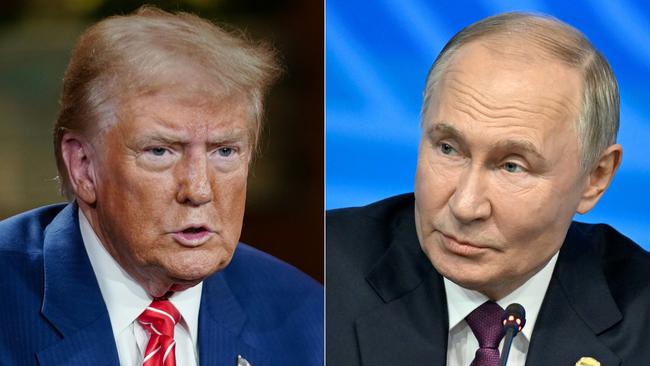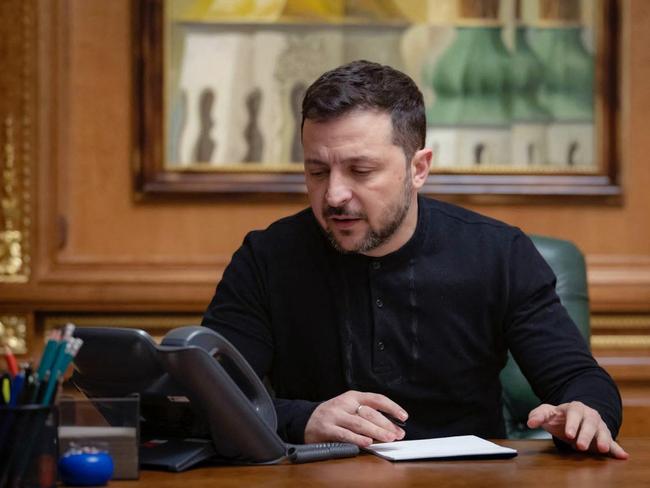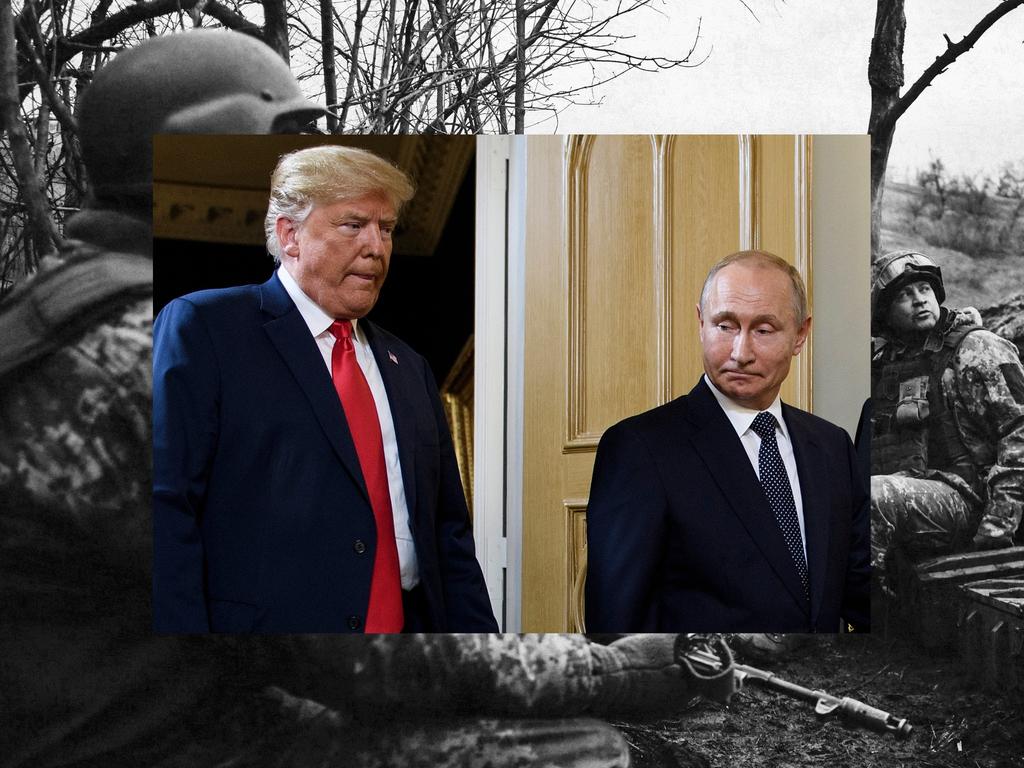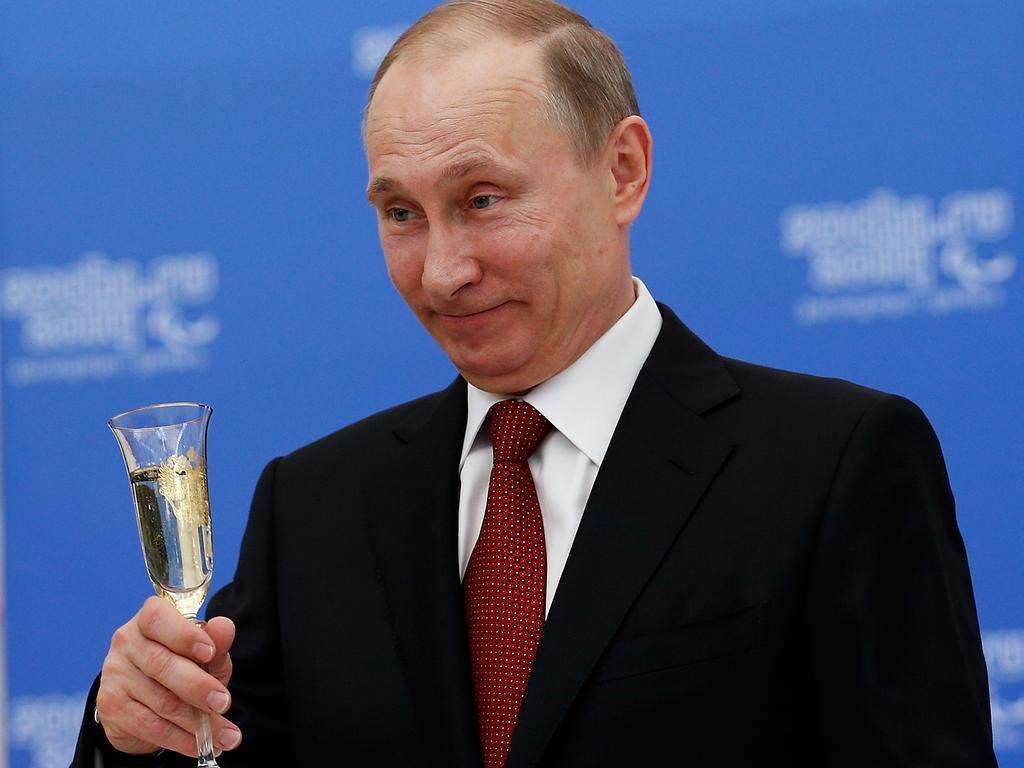Learn from the past: Donald Trump warned against Munich 2.0 in Ukraine peace deal
Donald Trump has been warned against appeasement of Russia after opening negotiations to end the war in Ukraine, with the US President flagging his opposition to Kyiv joining NATO or a return to pre-2014 borders.

Donald Trump has been warned against appeasement of Russia after opening negotiations to end the war in Ukraine, with the US President flagging his opposition to Kyiv joining NATO or a return to pre-2014 borders as part of a negotiated settlement.
The concessions to Moscow were granted ahead of peace talks commencing after Mr Trump had a 90-minute phone call with Vladimir Putin. He described the discussion as “highly productive” and noted that “we agreed to work together, very closely, including visiting each other’s nations”.
Mr Trump said a first meeting with the Russian leader would likely occur in Saudi Arabia “in the not-too-distant future”, probably be without Ukrainian leader Volodymyr Zelensky.
Mr Trump said he didn’t think it was “practical” for Ukraine to join NATO, although he conceded the country “could get some land back” from Russia.
His comments came after US Defence Secretary Pete Hegseth told a meeting of the Ukraine Defence Contact Group in Brussels that NATO members needed to lift their defence spending to 5 per cent of GDP. He said the US did “not believe that NATO membership is a realistic outcome of a negotiated settlement.”
“Any security guarantee must be backed by capable European and non-European troops,” he said. “If these troops are deployed as peacekeepers to Ukraine at any point, they should be deployed as part of a non-NATO mission and they should not be covered under Article V.”
Mr Hegseth also made clear that “returning to Ukraine’s pre-2014 borders is an unrealistic objective. Chasing this illusionary goal will only prolong the war.”
After first speaking with Putin, the US President then called Mr Zelensky and posted on his Truth Social platform that the Ukrainian leader also “wants to make PEACE” – although he later stopped short of acknowledging Kyiv as an equal partner in the negotiations for a truce.
“That’s an interesting question,” Mr Trump said. “I think they have to make peace.”
The shift in US foreign policy drew sharp criticism from Ukraine’s top diplomat in Australia, who warned that Mr Trump’s plan to end the war risked becoming an exercise in appeasement.
Ambassador Vasyl Myroshnychenko said that if Kyiv was forced into a settlement that favoured Moscow it would set a terrible precedent for the world.
“It’s very important that we avoid a Munich 2.0,” he said at Parliament House on Thursday, referring to the appeasement of the Nazis by Britain and France in the 1938 Munich Agreement.

“If might is right, it opens up lots of security issues for everybody … especially here in the region. What about those smaller Pacific Islands? If sovereignty can be so easily broken … because somebody has the military means to do it, what sort of world are we going to have?”
Liberal senator and former defence minister Linda Reynolds backed the Ukrainian envoy, saying: “President Trump’s opening position is one akin to appeasement, which is Russia keeping all of the territory that they’ve won over the last three years by their invasion in Ukraine.”
Daniel Byman, the director of the Warfare, Irregular Threats and Terrorism program at the Centre for Strategic and International Studies, said the conditions imposed by the US to guide the peace talks “favour Russia”.
“One of the Ukraine’s biggest worries is that if it makes peace, Russia will come back in five years – rearmed and ready – and invade again. NATO membership would guard against that. On the 2014 borders, allowing annexation would reward Russian aggression.”
Mr Trump has already assembled a negotiating team composed of Secretary of State Marco Rubio, CIA director John Ratcliffe, National Security Adviser Mike Waltz and his Middle East special envoy, Steve Witkoff. He said that Mr Rubio and Vice-President JD Vance would meet Mr Zelensky at the Munich Security Conference on Friday, declaring it was “time to stop this ridiculous war”.
Shortly after speaking to Mr Trump, Mr Zelensky described the call as “very substantive” and said he and the US President had discussed “many aspects – diplomatic, military and economic – and President Trump informed me about what Putin told him.”
“We believe that America’s strength, together with Ukraine and all our partners, is enough to push Russia to peace,” he said.
Andriy Yermak, head of Ukraine’s presidential office, said Mr Zelensky had stressed to Mr Trump that the war must end “in a just peace”. He also said Ukraine’s “independence, territorial integrity and sovereignty” could not be subject to any compromise.
Mr Yermak added that the US and Ukrainian negotiating teams would “begin a process of daily work”. A meeting between Mr Zelensky and Mr Trump was expected to occur “very soon”.
Speaking in Brussels, Mr Hegseth sketched out the key changes in US foreign policy. “We’re also here today to directly and unambiguously express that stark strategic realities prevent the United States of America from being primarily focused on the security of Europe,” he said.
Safeguarding European security needed to become a priority for “European members of NATO” and it was up to Europe to “provide the overwhelming share of future lethal and non-lethal aid to Ukraine”.
Mr Hegseth said this would involve increasing defence spending. “Two per cent is not enough. President Trump has called for 5 per cent and I agree. Increasing your commitment to your own security is a down payment for the future.”
America’s strategic priorities would turn towards preserving its own border while deterring China in the Pacific.
Mr Myroshnychenko said Ukraine was relying on Mr Trump’s “wisdom and leadership” to secure a truce, but whatever deal was struck needed to be fair. “It has to be a just, comprehensive and lasting peace. And it cannot be achieved without Ukraine’s involvement. It cannot be achieved without European involvement,” he said.
The ambassador, who was at parliament for a vigil to mark the upcoming third anniversary of the war, said Ukrainians would never accept the permanent loss of territory to Russia. “For any political leader in Ukraine, for President Zelensky, for anybody we will have in the future, recognising the concession of Ukrainian territory is not possible from a political standpoint,” he said. “There could be some sort of arrangement, which I believe is achievable. But at the same time, legal transfer of any territory is not possible in a political context.”
Former Australian foreign minister Bob Carr told The Australian that “the brutal realism revealed even before there’s a date for negotiations is what’s striking here”.
He said the US conditions ahead of the peace talks even commencing were “not at all unreasonable propositions for an ultimate peace settlement. But it certainly looks ham-fisted amateurism to make these announcements before extracting anything from the Russian side.”
“Was it wise to make this the starting point before Russia concedes that it will withdraw from even a square kilometre or give a guarantee to respect ceasefire lines that have rightly become de facto borders,” Mr Carr said.







To join the conversation, please log in. Don't have an account? Register
Join the conversation, you are commenting as Logout